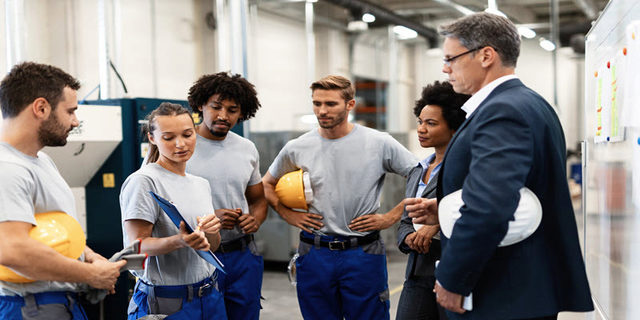Sustainability is more than just a buzzword and the excesses of the past need to be acted upon before they irrevocably change the course of the future. Sustainability goals and initiatives are becoming critical for C-suite members, customers, suppliers, employees, investors, government and regulatory agencies, and society at large. According to the World Economic Forum, the world is using natural resources 1.7 times faster that we should. Continuing at this rate means that we will face dire circumstances. This also means that leading manufacturers have a tremendous opportunity to make a significant impact and accelerate the journey to a more sustainable future. There is an existential need now more than ever before to become leaner and greener – to reduce, reuse, recycle, recover, redesign, and remanufacture.
Remanufacturing finds new purpose
Automotive, industrial, and high-tech industries are long-time proponents of reducing waste, driving operational efficiencies, and remanufacturing with their relatively higher levels of non-renewable resources and energy consumption. Opportunities exist across the end-to-end value stream – from sourcing, supply chain, production and aftermarket services, all the way through to the product’s end-of-life. The automotive industry bears witness to the new EV revolution, which would make many complex auto components obsolete. Vehicle and spare parts production are shifting to the EV market with new business models and revenue streams, increased supplier collaboration, and improved supply chain visibility.
Remanufacturing will pave the way ahead to improving operating margins and contributing to the circular economy. This focus on remanufacturing can be seen in its surge, with the remanufactured global auto parts market growing at over 7% yearly to around $91 billion by 2026.
Challenges are complex and manifold
Remanufacturing comes in many forms – a used product can be re-conditioned into a “like new” product, converted into a different product of the same product family, or salvaged for parts that find their way into many remanufactured products. Whilst focusing on remanufacturing, organizations need to not only standardize the way of working (standard labor times, units of consumables, etc.), but also ensure a minimum working life for the remanufactured components and specify the remanufactured sub-components that go into a new component, vehicle, or machinery. This is difficult considering that used (or failed) parts can have varying degrees of damage, and there is subjectivity involved in deciding the best course of action. Organizations must be sensitive to the fact that the purpose of remanufacturing is to reduce the dependency on non-renewable resources while meeting sustainable development goals and improving customer experience.
Thus, it becomes imperative to track KPIs for recycled material used, mandatory replaceable material quotient, failed core cost to final price, direct/indirect energy consumption, scrap generated per ton of remanufactured product, failure rate of remanufactured product/family, etc. While these are from a sustainability perspective, organizations also need to define warranty specifications for remanufactured products, improve reverse logistics and embed robust traceability – all to improve the customer experience throughout the product lifecycle.
Pega, TechM, and AWS join forces for aftermarket services and sustainability
As a result of an ongoing strategic partnership and working together to leverage decades of industry expertise, Tech Mahindra has co-created AftEAZE, powered by Pega and run on AWS. AftEAZE is an integrated end-to-end digital solution that transforms the aftersales experience for manufacturers, suppliers, dealers/distributors, and their end customers.
Remanufacturing is built into the core functionality of AftEAZE and covers the entire value chain – parts management, reverse logistics, tear-down and quality inspection, and repurpose/recycle. In addition, the cloud can play a vital role in helping customers minimize their carbon footprint in the journey to improve sustainability. The 451 Research report concluded that hosting workloads in the AWS cloud is 3.6 times more efficient and reduces carbon footprint by 88% compared to running that same workload on premises.
Learn more about how we can help you respond to your sustainable manufacturing and aftermarket challenges:
- Watch this video to see how Navistar is modernizing the aftersales journey.
- Learn how Tech Mahindra partners with Pega and AWS to optimize aftermarket business processes.
- Read this case study about how one high-tech manufacturer future-proofs its sourcing and supplier quality
- See how this heavy truck manufacturer saved millions of dollars in supplier recovery.
Connected aftermarket services: A new way to unlock revenue
Even as new orders decrease, manufacturers can increase revenue with connected aftermarket services that improve product outcomes and customer satisfaction. Pega makes it possible – and simple.
Learn moreInnovate and evolve high-tech manufacturing
Pivot operations. Streamline supply chains. Transform experiences. Future-proof your business model for what comes next.
Learn more
